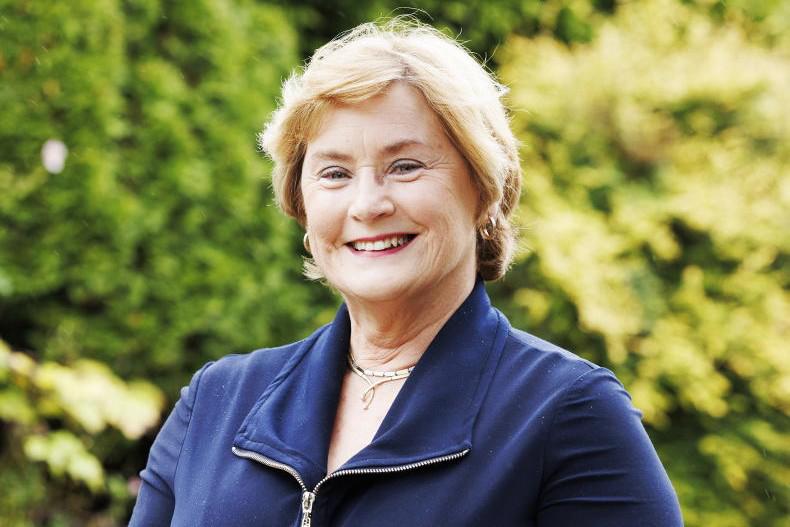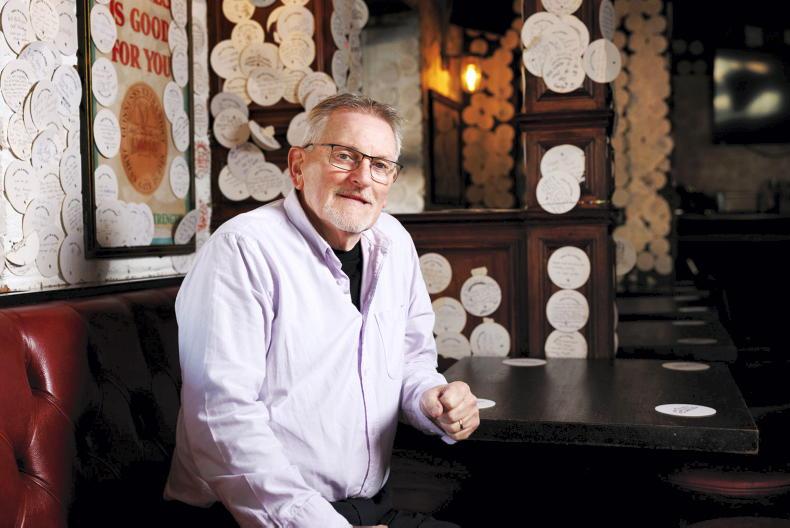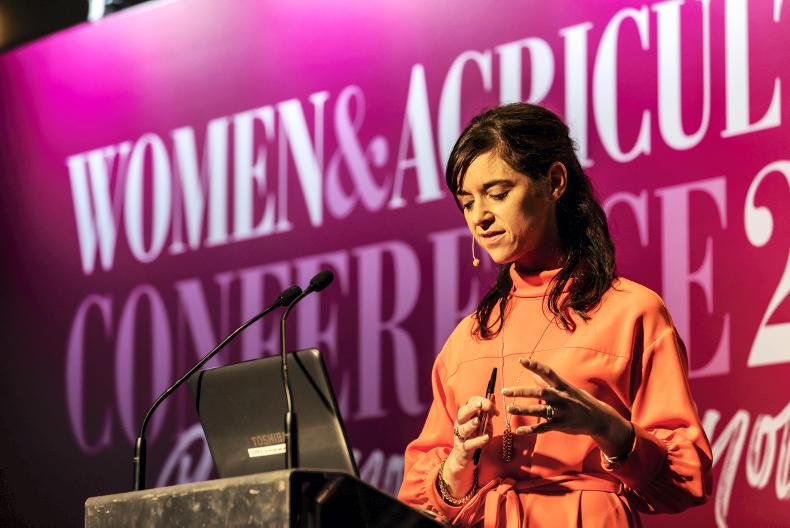Vicky Phelan’s refusal to stay silent about her incorrect smear test results – and as a result her terminal cervical cancer diagnosis – didn’t just highlight a flawed system, it led the way for the truth to be revealed to 221 women affected by the Cervical Check scandal.
What many of us don’t realise, however, was just how sick Vicky was at that time, just how much strength it took to leave her bed in Limerick and stand in front of the High Court and the nation’s media. The backstory of her thoughts and fears of that day, the legal battle that led to those steps and how she herself has been instrumental in improving her own health is revealed in her book, Overcoming. Vicky will also take to the stage at our Women & Agriculture Conference next week in the Radisson Hotel & Spa in Sligo as our keynote speaker.
“I really believe the 600 women sitting in the audience are such an important group of women to speak to. I come from a small farming village, I’m not a farmer but many of my friends are and I know that women working as farmers or married to farmers feel very isolated.
“I want them to know they’re not alone and these important health issues that women face, they should be talked about. As a group, farming women offer a unique support to each other. I am sure when I stand on stage next week, there will be women sitting there who will have gone through cancer themselves, or whose husband has. But because farming is self-employed, often there is no fallback for that loss of income, there is no sick leave when you are farming.
“The health side of cancer is stressful enough, never mind adding financial pressures to the mix. These are the very real realities that farming families face and it is the women in the room who can be your support system through it. Perhaps a support group needs to be set up for this very reason.”
Women empowering women
Over the past year and a half, Vicky has achieved so much in leading the way for women affected by the cervical cancer scandal but when we ask her what she is most proud of, she says it’s seeing other women become stronger.
“Since my court case, I have seen more and more women stand up and take control, to ask questions and to say, ‘I am not willing to put up with this anymore’. What’s really touches me is women saying, ‘Vicky, you gave me the confidence to speak up and say no, this isn’t right’. For so long, women have been suffering with symptoms in private and saying nothing. Now they are finally brave enough to challenge.”
She says that is the reason that she continues to speak out and talk at events such as the Women & Agriculture Conference because we have to keep that going. And there is a lot more to do.
“As much as things have changed, as a nation, we still aren’t great for lobbying. If you look to the UK, they have a lobbying group called Target Ovarian and they have been instrumental in getting drugs approved for ovarian cancer, by working with the licensing body. So it is great that women in this country are speaking out, but we need to rally together more. Look what we achieved last year with Repeal the Eighth when the Together for Yes campaign was formed. Now more than ever we need to come together, to mobilise, to campaign for better conditions for women.”
A different path
This lobbying life is very new to Vicky. She doesn’t come from a political background, this wasn’t part of the plan. Instead, her working life has been dedicated to academia and research, working both in the University of Limerick and Waterford Institute of Technology. So what’s it like being catapulted from normal life into being a national campaigner, and an inspiration to others?
“It’s weird, it still feels weird. But I never got into this for the awards or for people to look up to me. I just did it because it was the right thing to do. And then after my court case, as the number affected by Cervical check got bigger every week, from the initial figure of 14 women, and then 160 and then 221, at that stage I thought I just can’t pull back. I couldn’t, I just felt – and I hope this doesn’t sound conceited – but people were listening to me. I owed it to the other women affected. I couldn’t not talk because it is too important, there are people’s lives at stake.”
What Vicky didn’t factor in to the equation was that helping others would end up helping her along the way.
“People ask me if I am still angry and I can honestly say I am not. I think if my case had settled and I didn’t do any of this, I probably would be very angry. I would have stayed at home and it would have all festered, that I was paid all this money but I’d have known that they had done something wrong and it wasn’t out there. Now I am helping others, I feel useful, I feel I have a purpose in life and that has helped me feel better, that has been the focus of my energy.”
Treatment
As well as lobbying for settlements for women affected by the failings of Cervical Check and campaigning for the Women’s Health Taskforce which has recently been announced, Vicky is also helping herself and others through her research skills. In fact, it could be said that her research background has saved her life this far. After all, in the spring of 2018, she was told she had less than a year to live – six months if she didn’t opt for chemotherapy – but Vicky simply couldn’t accept that this was the only option.
She found that a drug called Pembrolizumab can help women with cervical cancer, as well as other cancers, and she is living proof as her tumours have shrunk by over 50%. However, the costs aren’t covered by the State and so isn’t offered to patients.
“I found this drug myself and I also have a back-up plan of a clinical trial that I have been provisionally accepted onto in the US. So there are options out there for people and I have helped other people, not just those with cervical cancer, but different types of cancer find drugs that work for them. The problem is, we are such a small country with a small population that clinical trials are limited here.”
At the moment though, with the help of Pembrolizumab, Vicky is feeling well, both mentally and physically.
“When you are given a diagnosis like that, and a year and a half later, you’re still here feeling well, then it goes without saying you feel grateful for every day, 100%. I am grateful that I am not hooked up to pain medication or in a hospice and I am very appreciative that I can get up every day and do normal stuff. The stuff that we all take for granted, I don’t take for granted anymore.” CL









SHARING OPTIONS